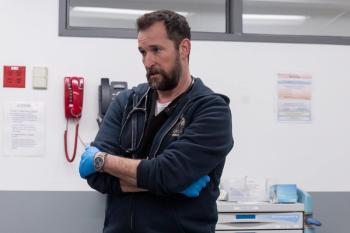
HCA Healthcare CEO Sam Hazen cites patient care as key to success | ViVE Conference

Speaking at ViVE, he says the large, for-profit system is focused on improving the quality of care. He expects more growth in outpatient care, but he also sees a growing demand for hospitals.
Nashville - Sam Hazen pushes back at the idea that a for-profit hospital system should be incompatible with healthcare of the highest quality.
“We see it as just the opposite,” said Hazen, CEO of HCA Healthcare.
Hazen spoke at the ViVE Conference Tuesday. HCA, the large for-profit system, is based in Nashville. Hazen spoke about the company, the future of healthcare and the need to use data to improve patient care and business operations.
During a conversation with Helen Waters, executive vice president & COO of MEDITECH, Hazen says HCA is using its scale to benefit patients.
“It’s geared toward improving patient care,” he said.
HCA Healthcare has grown significantly over the past decade, Hazen notes. The system operates 180 hospitals and 2,500 outpatient facilities, and HCA has 285,000 employees and 50,000 affiliated physicians.
Critics have said private hospital companies put the focus on profits over the needs of patients. With the company’s scale, Hazen said HCA is creating a better environment for physicians and for patients.
“That’s allowed us to improve our quality,” Hazen said.
And he said that success in patient care is driving the company’s growth. “We would not be successful if we weren’t centered on that,” he said.
When asked about the future of healthcare and the idea of more care being delivered outside the four walls of the hospital, Hazen agreed to a point. More patients are looking for care in outpatient facilities, and HCA’s network is built with that in mind.
“We have roughly 15 outpatient facilities for every hospital,” Hazen said. “I think our outpatient facilities will grow faster than our hospitals.”
At the same time, Hazen said he sees a growing demand for hospital care in the future, particularly with an aging population that is going to need more healthcare.
Hazen said HCA is aiming to create a closed loop system.
“We think that model will sustain itself over time,” he said.
HCA Healthcare has some ambitious plans to build more hospitals, and the company is focusing on states with fast-growing populations. HCA said last year the company is
For-profit hospitals have generally fared better financially during the COVID-19 pandemic than their non-profit peers. HCA and two other large for-profit systems – Tenet Healthcare Corporation and Community Health Services – maintained positive operating margins through the pandemic and exceeded pre-pandemic levels, according to an
Even with HCA’s size and its extensive networks of hospitals and outpatient facilities, Hazen said, “our approach is to be a system within a community.”
Hazen outlined some of the goals for the system, and he says HCA is focused on gaining more insights from data.
“We’re on this journey now to use data more effectively,” Hazen says, adding, “We’re excited about the next evolution of the company with respect to that.”
He noted that HCA recently moved to MEDITECH’s cloud-based health record system, which he said will allow the system to use data better and give doctors more insights they can use, improve patient safety and manage business operations more effectively.
Moving to the cloud “really opens up the possibilities for much better care in our company,” he said.
Hazen also said the better use of data will help the system recognize trends and patterns in patient care.
“We haven’t done as good a job as other industries in capitalizing on the patterns,” he said.
Across the industry, Hazen said health systems are recognizing the power of data to transform their operations and patient care.
“I think there’s an acceptance by providers that data can make a difference now,” he said.
Hazen praised the system’s clinicians for their work in the COVID-19 pandemic. HCA treated more than 400,000 patients with the coronavirus in the system’s hospitals.
“Our people really stepped and delivered in a way we’re really proud of,” he said.
Hazen joked that he does not have the skill set to treat patients.
“I’m not smart enough to be a doctor,” he said. “I’m not compassionate enough, I’m told, to be a nurse.”
But Hazen said he is aiming to help the system improve patient care.
“I’m really excited about our future,” Hazen said.





























































































